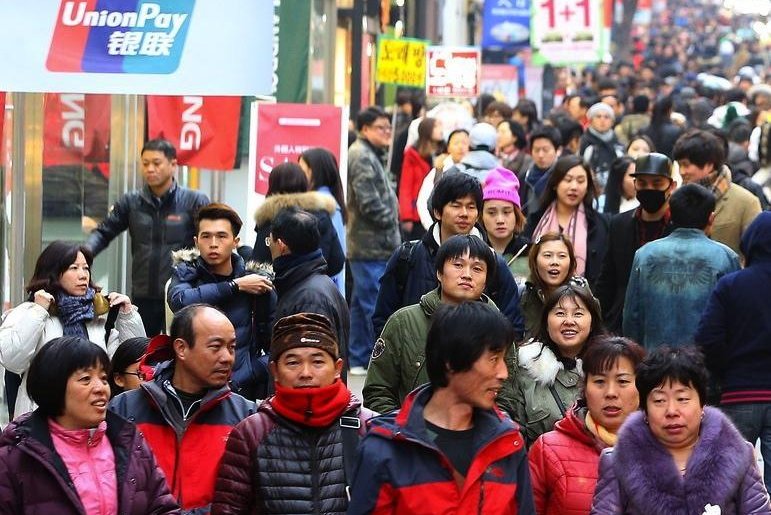Chinese tourists from the “Greater China” region have quickly become the largest group of inbound travelers to South Korea. File Photo by Yonhap
SEOUL, June 2 (UPI) -- Thousands of tourists from China, Hong Kong and Taiwan have canceled their South Korea travel plans over MERS fears, but the World Health Organization said such measures are not necessary.
Yonhap reported there are 25 confirmed cases of Middle East Respiratory Syndrome in South Korea. Two people have died. Two tertiary cases of MERS also were confirmed Tuesday.
That news, and the case of a confirmed South Korean MERS patient in mainland China, have made Chinese travelers wary of South Korea travel. Memories of the 2003 SARS epidemic still haunt China, Hong Kong and Taiwan – a disease that began in southern China but quickly spread to the neighboring areas.
The MERS coronavirus is more deadly but less contagious than SARS.
Chinese tourists from the "Greater China" region have quickly become the largest group of inbound travelers to South Korea, reported South Korean newspaper Kyunghyang Sinmun.
Of the 14.2 million who traveled to South Korea in 2014, more than 6.1 million were from Chinese-speaking countries.
Hana Tour, South Korea's largest travel agency and tour operator said a total of 300 Chinese from Beijing and Shanghai alone have canceled their travel plans with the company.
South Korea's tourism agency said 2,500 travelers from China, Hong Kong and Taiwan have canceled plans for fear of the infectious disease.
Those measures, however, are not necessary, said WHO spokesman Christian Lindmeier.
Lindmeier said Tuesday the isolation and treatment of confirmed MERS patients rules out the need to cancel travel plans or place cross-border control on travelers from MERS-infected countries.
The two tertiary MERS cases are not sufficiently significant in number to make a major impact on public health, said Lindmeier, but the infections occurred because South Korea's health authorities and doctors were not well-informed about the disease.
WHO officials said South Korea should be closely monitored.















